Some of us just get lucky and know exactly what career we want to pursue from a young age. For Emily Middleton, her calling was to be a nurse, and today she’s living her dream. She began with a passion for medicine and helping others, and so nursing came naturally. Yet, even when you know exactly what your dream job is from the start, getting there isn’t always easy.
Emily’s story is a perfect example of how diligence and hard work can pay off. After her first round of nursing school applications were all rejected, she didn’t let herself get discouraged. She went on to graduate from Drexel University’s nursing program, but the struggle wasn’t quite over. As Emily discovered, the nursing job market was tough. Very few hospitals could risk hiring a nurse with no experience, but Emily fought hard for the right opportunity, and finally landed the job of her dreams.
Working tirelessly for something you want makes achieving it that much sweeter. Emily’s job is demanding; she faces 12-hour night shifts and intense life or death situations (literally), but she has accomplished something that she’s always dreamed of doing. “I was so happy that, through the tough times,” Emily explains, “I continued to remain positive.” Spoiler alert: she never once gave up.
Her Starting Point
What was it about nursing that first sparked your interest? How did you know this was the right path for you?
I was always interested in the medical field; I love science, the human body and the ability to help people. Nursing was always at the forefront of what I wanted to do, but I did juggle thoughts of becoming a firefighter, doctor or a physician assistant. After much research, job shadows and lengthy discussions with my mom I decided nursing was the path I wanted to go down.
Most nurses that work in hospitals do three 12-hour shifts a week. A family and children are in my plan for my future and I knew this career would allow me the ability to juggle work, family and a personal life. Balance is key. I felt that the schedule demands of a physician might not have allowed me the life I wanted to have outside of work. However, I was worried that if I did not go to medical school I would not be fulfilling my potential. It took some thought but I know I have chosen the right path and am very happy with my nursing career and the possibilities of my future.
What, or who, inspired you to dive into a career in nursing? Was there a specific moment or event you remember that helped you decide to pursue nursing as a career?
As I child, I remember watching the movie “A Walk to Remember.” It is about a young girl who is dying of cancer and makes a list of things she wanted to do before she died. After I watched that movie, I, too, got inspired to make a list of things I would do before I died. Number three on my list: Become a nurse and deliver babies in Africa. Well, I have yet to make a trip to Africa, but I did become a nurse. That movie and my list gave me inspiration as I continued in my schooling.
As a Human Physiology major at the University of Oregon, I did teeter between becoming a doctor and becoming a nurse, but decided nursing would be the right choice for my career and my life. Since Oregon did not have a nursing program, I had to look elsewhere. By sophomore year, I had completed all my nursing pre-requisites and I started applying to nursing programs.
It was a Tuesday afternoon phone call with my mom that ultimately changed my life. She called to inform me that one of the three schools that I had applied to did not accept me into their nursing program. That was a devastating day and the first time in my life when I had not gotten something I had worked so hard for. It was in that moment I decided nursing is what I wanted to do and I would do anything to make that happen.
Did you complete any internships or volunteer work that helped you establish yourself in the nursing industry? If so, tell us about these experiences and how they shaped the career you have today.
Despite getting accepted to a nursing program in Hawaii while at the University of Oregon, I decided to stay in Oregon and complete my degree. I graduated from Oregon a year early and started applying to accelerated (ACE) nursing programs after graduation. ACE programs are for students who hold bachelor’s degrees in other fields and can complete their BSN in 12 to 18 months, depending on the program.
Getting accepted into nursing school was not easy or as quick as I thought it would be. During that time, I volunteered at hospitals and enrolled in EMT school to gain some medical experience while I waited. It was during EMT school that I was accepted into the ACE program at Drexel University. That fall I moved to Philadelphia for school, and a year later, I had a Bachelor of Science in nursing.
Were you always a pro at the sciences or did you have to push yourself to succeed at your health and nursing classes? Did you ever consider another, more creative career path instead of nursing?
I was valedictorian in high school, but I would not necessarily say all science and math courses came “easily” to me. I love school, science and math, but I have always been an extremely hard worker. I studied, did my homework on time and would not accept anything less than an A. If I needed extra help, I would attend office hours, study groups or get a tutor. I did whatever necessary to succeed and understand the subject being taught. My sister and I have always talked about opening a bakery someday, but baking to me is just a hobby and it is the medical field that has always had my heart and interest.
Her Big Break
How did you land your job at Salem Hospital? What qualities and skills did you bring to the table that you think other applicants may not have had?
My journey to this job was a long one that required resilience and determination. After I graduated from nursing school, the job market was in a slump. Hospitals needed nurses, but were only willing to hire someone with experience. Yet, how is one to gain experience if no one is willing to hire them? I applied to 50 jobs a day, networked, volunteered but still had no luck. It wasn’t until the following September that I got my first break.
I was a server at a Red Robin while trying to find a job and I ran into my old Scuba Diving instructor from the University of Oregon. His wife was a speech therapist for a home health company and he told me they were looking for nurses. I got in contact with the manager and was set up with an interview. During our interview, she said to me, “You are a brand new nurse, but you appear educated, optimistic and hardworking. I am willing to take a chance on you.” Finally someone believed in me.
I worked as a home health nurse and at a skilled nursing facility for the next seven months to gain some experience, and then applied to hospital positions. I got an interview at Salem and the rest is history.
The day I received the offer from Salem was one of the happiest of my life. I was driving down I-5 and I just started crying tears of joy. From getting into nursing school, to making it through nursing school, to finding my first job, it was a long journey. At that moment, I knew I had finally made it and all of my hard work and perseverance had paid off. I was so happy that through the tough times, I continued to remain positive and that I never gave up. I had definitely become a stronger person and I will cherish that moment forever.
What specifically was it about the cardiovascular intensive care unit that caught your eye? What is involved in a typical day?
During nursing school, I never thought I would want to be an ICU nurse. However, the heart had always been my favorite organ of the human body and its complexity truly amazes me. At that point in my journey, I was applying to any and every job, but life landed me exactly where I was meant to be.
Every day at work is a new adventure and you never know what to expect. I am a nightshift nurse, so I start my shift at 1900 (7:00 p.m.) and am off between 7:30 and 8:00 a.m. the next morning. I start my shift by getting a report on my patients from the dayshift nurse and then make my introductions to patients that I will be caring for that evening.
As an ICU nurse I typically have one to two patients to care for as
most are intubated, sedated and have many extensive lines, such as an arterial line, pulmonary artery catheter or a central line. Most are on multiple IV medications for blood pressure and heart rate control, infection and hydration. I am constantly titrating these drips based on their condition. They require continuous telemetry monitoring, hourly vitals, chest tube outputs and urine outputs. They also need to be turned in bed every one to two hours to prevent pressure ulcers, a daily chlorhexidine bath and oral care every four hours to prevent ventilator associated pneumonia. I am in contact with the medical team based on any changes so as to provide the utmost care to my patients.
A lot of patients have one or multiple family members visiting or even staying overnight with them by their bedside. I educate my patients and their families regarding their current condition and steps towards healing. Each shift is a new learning experience and keeps me on my toes until the dayshift nurse arrives. I give my updates on the nightly events and then head home.
As a registered nurse working in the cardiovascular ICU, we imagine that a large part of your job involves thinking on your feet. Do you ever find it daunting that people’s lives are in your hands? How do you deal with the stress inherent in this role?
Working in the CV-ICU can be very stressful and draining at times. Due to the complexity of our patient populations, I witness a lot of death and take part in many CODE BLUES, which is when a patient’s heart stops or they had a respiratory issue and need to be resuscitated. These situations require you to act quickly, but remain calm, confident and not get overwhelmed with the situation. You also are responsible for updating family members, educating and supporting them through this difficult time.
It can be difficult at times to know what to say to these patients and families, but you do the best you can and let them know you will take the best care of them and that they are in great hands. It can be tough, but I am very lucky to have an amazing group of people that I work with. They are there to help no matter what and will have your back in any situation.
Outside of work I have a good support system of friends and family. I also took up a few hobbies to focus on “me time” and to help me de-stress from my job. I took up running while in nursing school as a way to relieve stress and have an hour or so of mental clarity. I started running half marathons at that time and completed my first full marathon after I was done with school. Whenever I feel stressed or overwhelmed, I lace up my running shoes and head out into the world. Whether it is one mile or 26.2, running is my release and makes me feel like I can do anything, be anything and conquer anything.
Other forms of stress relief for me include reading, baking cookies or watching a mindless TV show. Whatever your outlet may be, it is very important to have a way to escape and focus on yourself and your own mental health. A mentor once told me “You will be unable to provide the utmost care for your patients if your own life and self are not in order. Find something that makes you happy and pursue it.”
What are some of your time-honored strategies for remaining alert and on your ‘A-game’ at all times in a job that requires long hours and a sometimes-draining schedule?
Coffee, lots of coffee and sleep. Working nightshift is a struggle in and of itself, and staying on your feet for 12 to 13 hours is draining. The days I work mostly consist of sleep, eat, work and sleep.
On my days off, I try to switch back to a daytime schedule, which can be hard at times. I usually make a schedule each week and make sure to plan plenty of time for sleep and rest, but also time for friends and fun. Staying hydrated and nourished is equally important. Sometimes it is hard to even take a bathroom break while on shift. I generally carry almonds or a protein bar in my scrub top so I can have a quick snack before my next task.
Her Perspective
What do you love most about working in a hospital? What is it about the hospital environment that lights your fire? More specifically, what is it about Salem Hospital that makes it a unique and special place to work?
I love working at Salem Hospital because of the staff and environment. From housekeeping to the CEO, everyone here wants to help others and make lives better. It is a place of teamwork and positivity. Not only is Salem a MAGNET hospital, but also the cardiac unit I work on is one of the top 50 in the nation. There also is vast room for advancement, education and training. I feel supported and valued at my hospital and am truly honored to work here.
If you could tell people to stop (or start) doing one thing to be healthier and to avoid cardiovascular problems down the road, what would it be? What do you wish more people knew about cardiovascular health?
Stop smoking, limit sodium intake, be more active and make healthier food choices. I wish people knew how their choices today would severely affect their future. People have this mindset that they are “fine now” and continue to smoke, eat fast food and live a sedentary lifestyle, but then 10 years down the road, they are struck with a heart attack, which can lead to death or a multitude of problems after. A lot of cardiac and health issues in general can be prevented if people lived healthier lives and took care of their bodies. Prevention is key.
What would you say to someone who wants to go into nursing as a career? What is the most important lesson you’ve learned or piece of advice you’ve been given as a registered nurse?
I get so excited to meet aspiring nurses. My advice would be this: Work hard, smile, persevere and always keep your eyes on your ultimate goal. There will be many roadblocks, but continue to push forward and you will get there. Nursing is a very tough but rewarding career—believe in yourself and you will succeed. Based on my Oregon Duck roots, I started my college journey at a school without a nursing program. I would recommend doing multiple job shadows to make sure nursing is for you and then apply to colleges that have a nursing school. It will make the application process and transition much easier.
And finally, what do you wake up looking forward to? What’s next for your career?
I wake up happy to be alive and ready to enjoy every spontaneous moment. I have encountered a lot of death at my job and it has made me truly understand how short life can be and to cherish my health and well-being.
As for my future, I am currently in the process of applying to graduate school to become an Acute-Care Nurse Practitioner and will start school this fall. I am very excited to be back in school and to see where my nursing journey will take me next. I want to continue to learn and grow in my profession.
I also plan to accomplish #3 on my childhood bucket list and go with a healthcare team to Africa to provide medical care to those in need. I want to expand my practice on a more global level. I am blessed to work in a profession that I can help people regain health and live long fulfilling lives.
You May Also Like
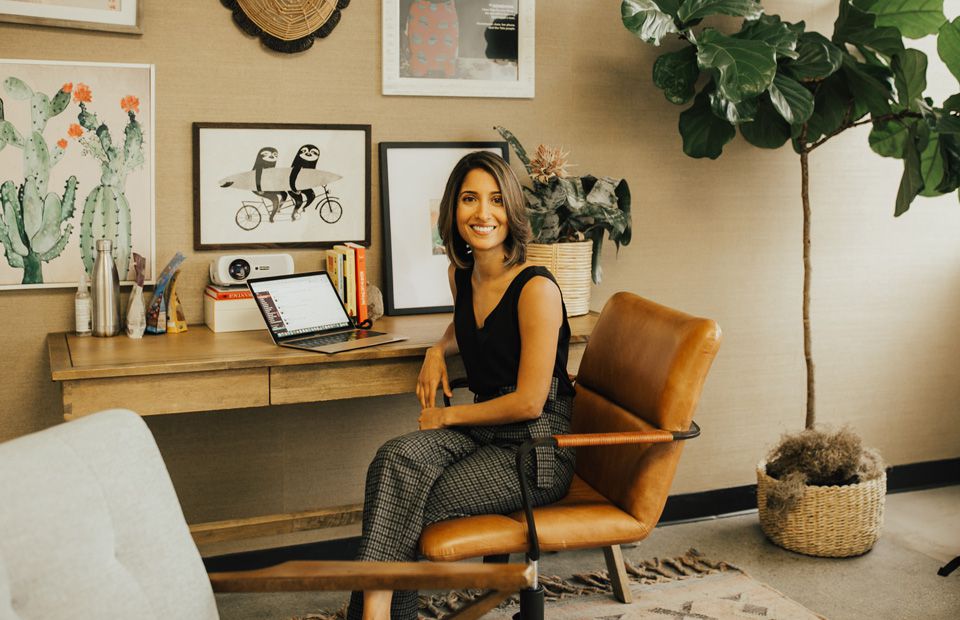
Technology
A Tech Founder on Why Being an Outsider Is a Strength
"I actually think most successful founders are rebels, of a sort. We’re trying to do new things and take on entrenched systems or ways of thinking. What makes me and our company different is that we’re outsiders."
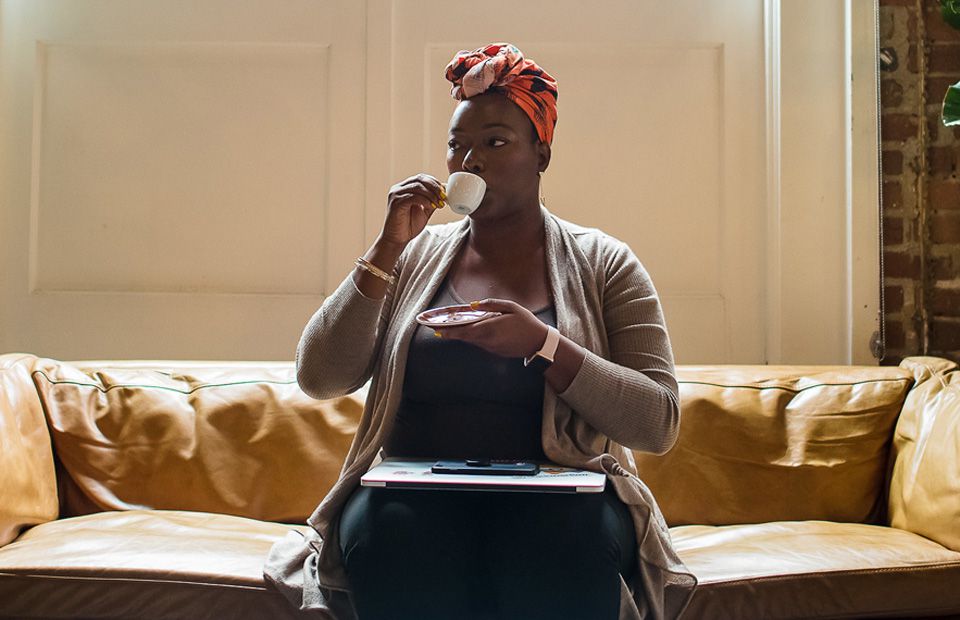
Technology
Omoju Miller—Tech Veteran, Leader, and Volunteer Advisor to the Obama Administration—on The Crucial Role of Creativity in the Tech Industry
"If you are in an environment where you feel marginalized, leave. Don’t try to change it. Go and look for a place that sees you and lets you be you."
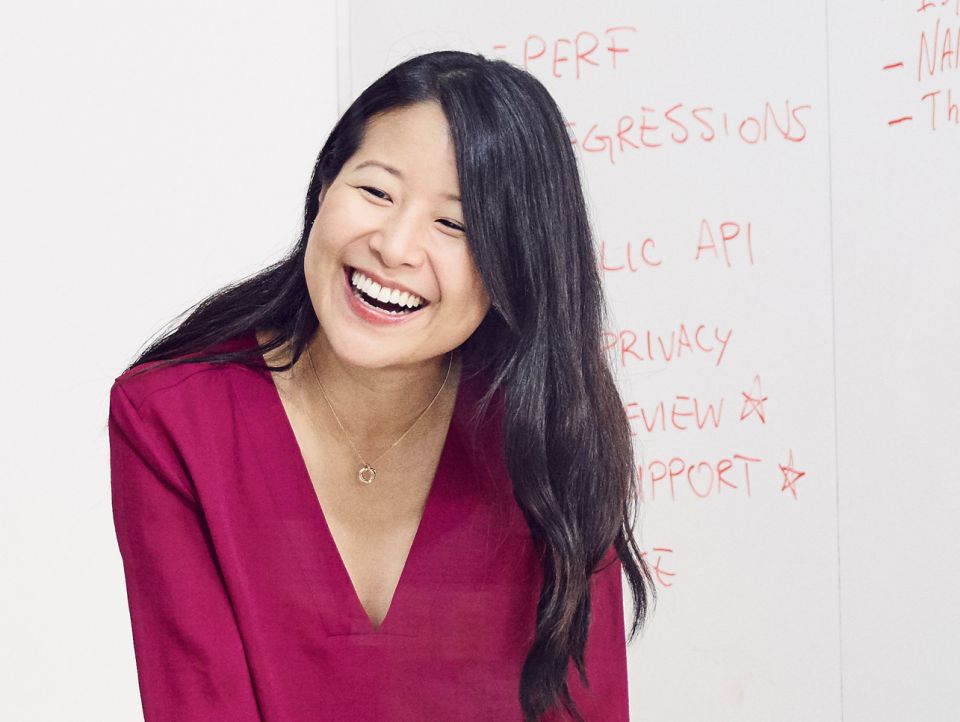
Technology
Sharing Stories as a Software Engineer
We sat down with Apple software engineer Emilie to learn about her day-to-day working at Apple along with what it takes to run the perfect meeting and her favorite ways to unwind.
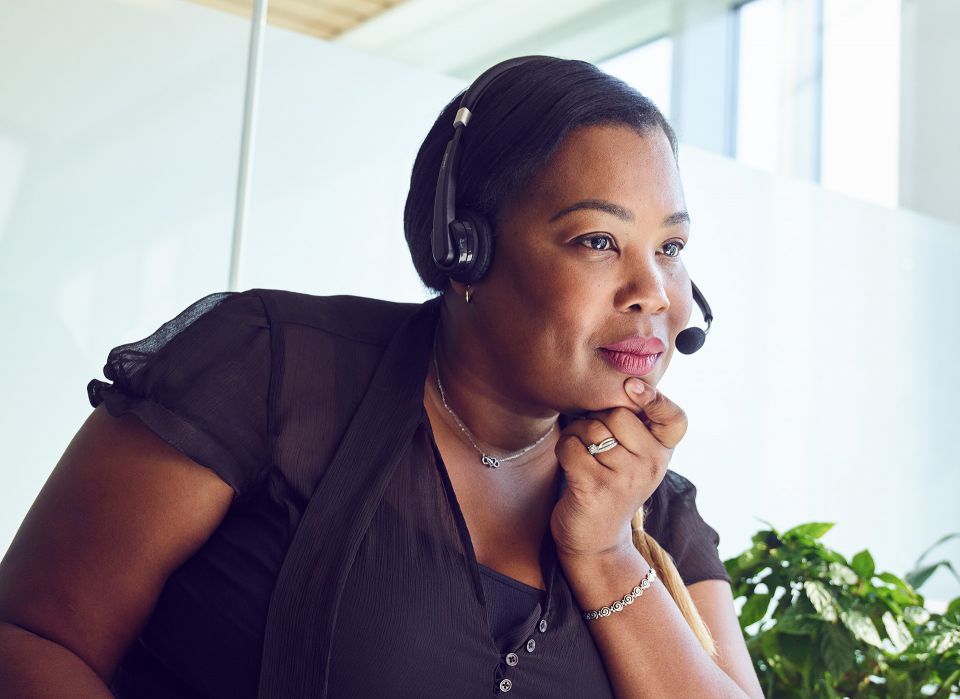
Technology
Creating Impact with Apple
We sat down with Apple's Senior Developer Partner Relations Advisor, Cris, to learn about what it takes to create a lasting impact within a large company. She shares a typical day in the life, her favorite book recommendations, and her top four tips to running a meeting.
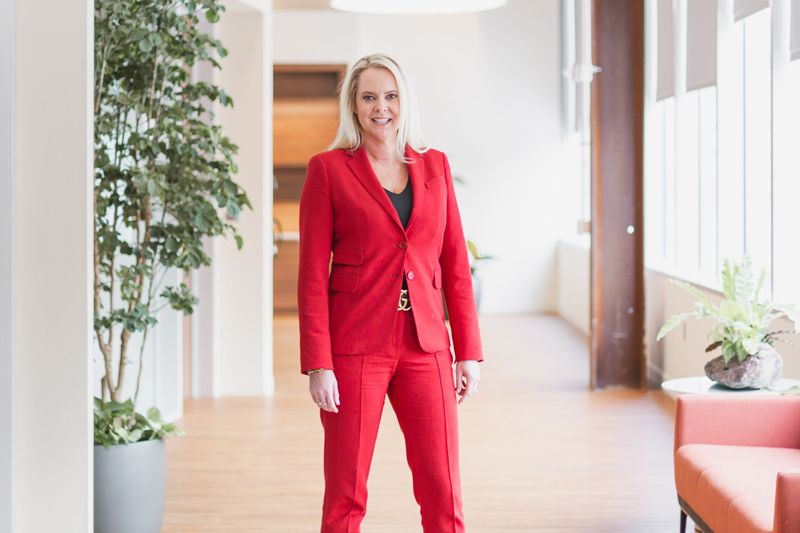
Technology
Salesforce’s Senior Vice President of Sales on Unconscious Bias, Failure, and Innovative Leadership
"Do not be afraid to fail, just bring your best self to the table."
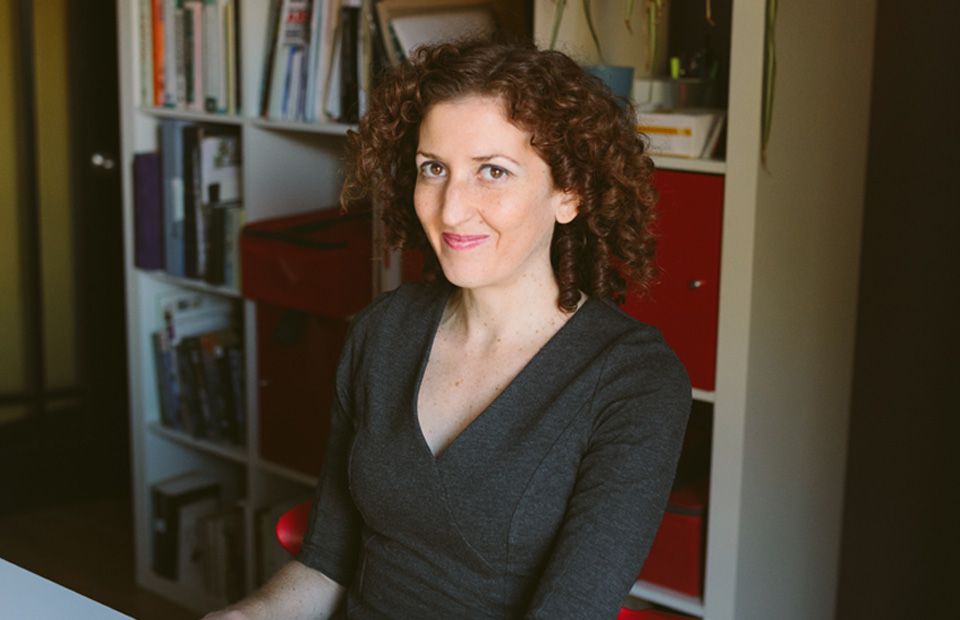
Technology
A Director of Engineering on Tech + Leadership
"I don’t believe in 'having it all'. If you spend more time on one thing, then you spend less time on another thing. All we can do is make choices on how to spend our time."
Get the Best Career Advice Delivered To Your Inbox
Join our newsletter to stay in the loop.
